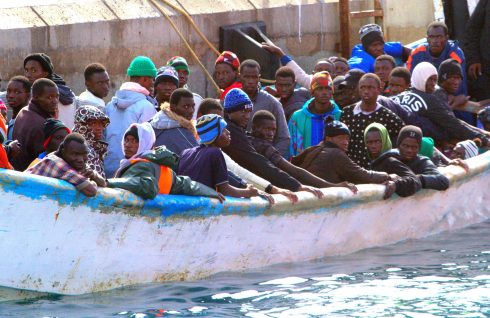HOTELS on the Spanish mainland have been approached to provide rooms for the wave of migrants arriving in the Canary Islands.
Human rights organisations are making requests to hotels, including in popular holiday destinations such as Alicante and Benidorm.
They are asking hotels to provide rooms at around £35 per night to offer proper housing for asylum seekers, who are forced to endure miserable conditions when they first arrive on Spanish shores.
Currently, some hotels in the Valencia region have indicated a willingness to put up the new arrivals.

However, Benidorm, the well-known British tourist hotspot, has declined to participate on the grounds that the request has not come from official government authorities.
The Valencian Hotel Association, HOSBEC, said they were willing to help but emphasised that they would not participate until a well-organised plan is put on place by the Spanish government.
“In the last 72 hours, several hoteliers in the Valencian Community have expressed their bewilderment after being contacted by external organisations offering flexible accommodation contracts for refugees in the coming weeks, adapted to each establishment’s economic and service conditions,” said a spokesperson from HOSBEC.
The association confirmed that no hotels in Benidorm are assisting at this time, though they are aware that in other tourist destinations within the Valencian community refugees are already staying in affiliated hotels or will do so in the near future.
The migration crisis in the Canary Islands reached unprecedented levels in October, with nearly 15,000 people arriving on the coasts of the islands.
The figure surpasses even the numbers from 2006, when thousands attempted to reach islands like Tenerife, Lanzarote, and Gran Canaria.

So far this year, migrants have continued to arrive in the Canary Islands.
In total, 44,404 irregular migrants have reached Spain, representing a 57.5% increase (16,208 more individuals) compared to the same period last year.
The peak number of irregular migrant arrivals was recorded in 2018 when 57,498 people reached the Spanish coasts.
The recurring crisis has put additional pressure on authorities to find temporary accommodations for undocumented immigrants awaiting processing before potential repatriation.
Existing camps are overcrowded, with approximately 150 people forced to spend their first night in the garage of a police station in south Tenerife, under appalling conditions.
The situation was marked by broken pipes hastily fixed with electrical tape, leading to sewage leakage and an unpleasant smell, creating a risk of accidents and the spread of infectious diseases.
READ MORE:
- Strong winds cause injuries in Spain’s Valencia: Woman is struck in the face by a falling sign while another is hit by a restaurant’s parasol
- Revealed: The regions in Spain which take in the highest number of boat migrants
- Nearly a thousand migrants have arrived on Spanish shores since Friday alone
Click here to read more Benidorm News from The Olive Press.








